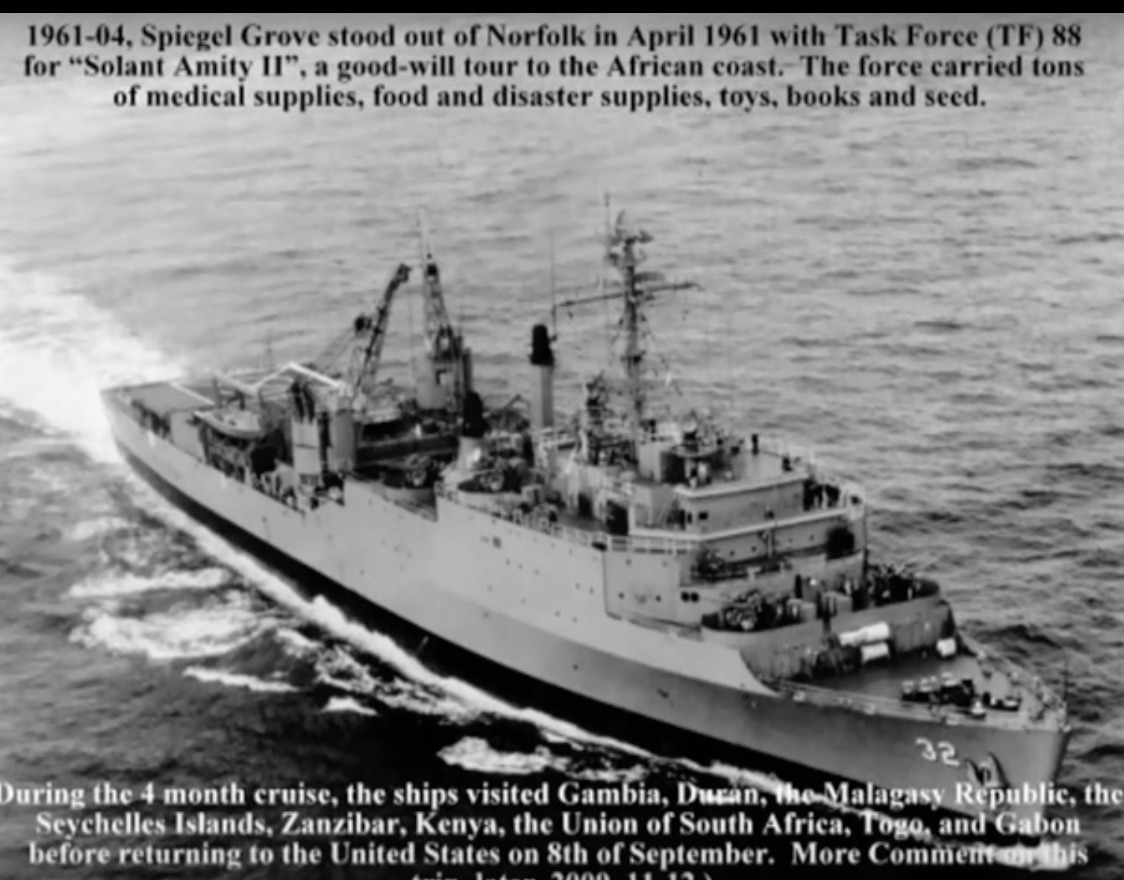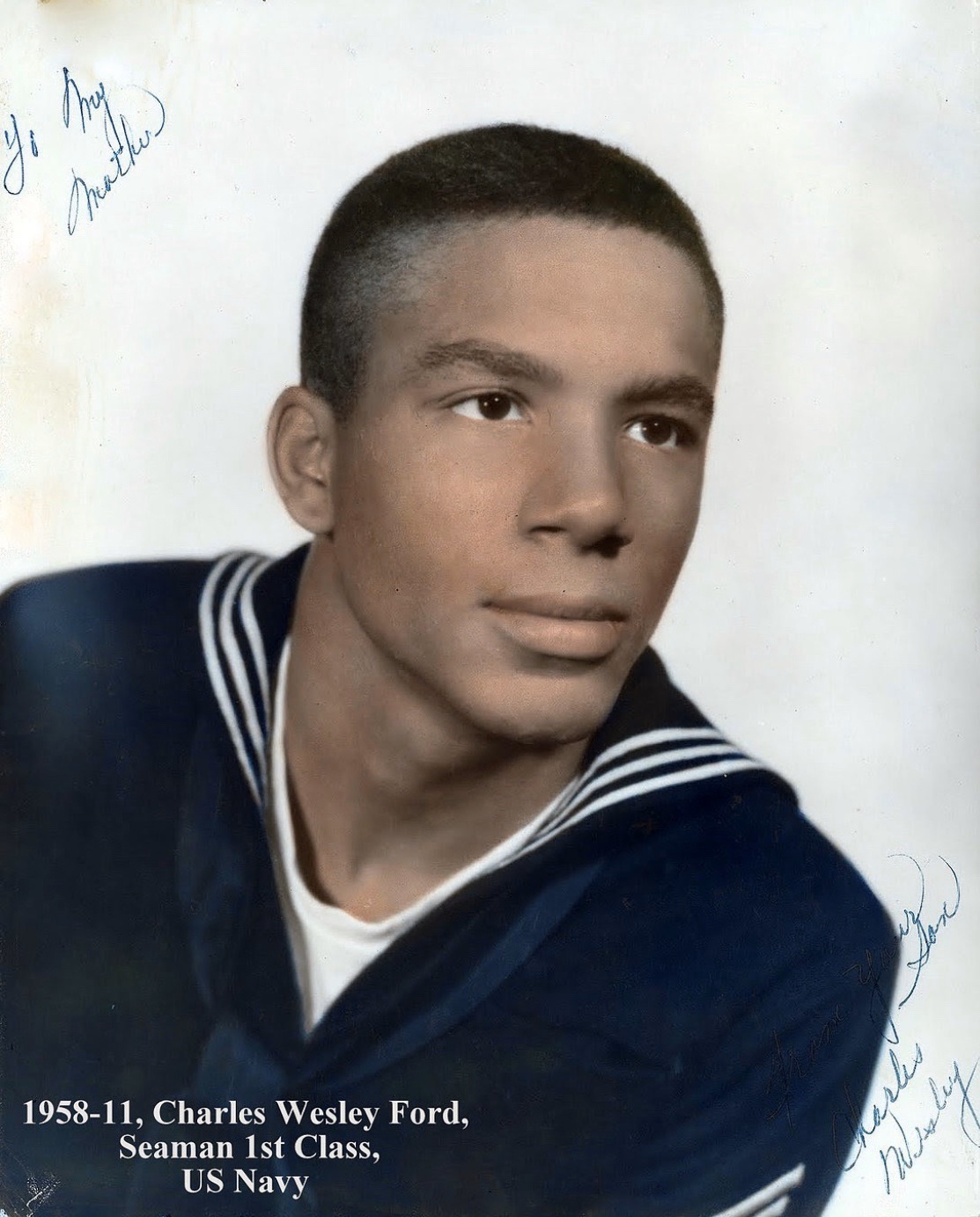Cape Town 10 By Jessy Dodd (Jessamyn Dodd)
CAPE TOWN 10
By Jessy Dodd (Jessamyn Dodd)

In May of 1961, the Speigel Grove set sail from America to Cape Town, South Africa. The ship and the crew were assigned to “Solant Amity II”, the second of four goodwill tours around the coast of Africa. British control of South Africa was ending, and the country was moving into the Dutch-descended Afrikaner class. It was the height of apartheid. Nelson Mandela had been arrested for touring the country in secret and organizing militants.
Stationed in Virgina was a young black sailor named Charles Wesley Ford. While stationed aboard the U.S.S. Spiegel, Ford had attained a Class 1 military driver’s license, a journalism apprenticeship with Navy Times, and, a position as captain of his ship’s basketball team. He led the team to an undefeated season in the Navy’s internal league. He was 20 years old.
Ford explains “I had not experienced racial hatred until I joined the service”. He grew up in the large cities of Boston, Ma and Los Angeles, CA. He recalls celebrating High Holy Days with his Jewish friends and playing high school golf with Mexican and Japanese peers. While on the train to Virginia, wearing his Naval uniform, at the stop in Champlain Illinois, he was ushered into the rearmost cars with the other black sailors. He was told he had to respect the laws of Apartheid. Catering to Apartheid ways seemed beyond belief to Ford, but orders were orders.
Approximately one week before pulling into port, the Athletics Officer instructed Ford to pull together a ten-man basketball team. His ten-man team was split up into five white players and five black players.
Just before arriving in Cape Town, the Athletics Officer announced that both teams had been invited to play the South African Allstars, an all-white team, at the British established Gordon Institute.
“These guys heard we were coming and wanted to play basketball with a team from America”. The white team would play first and then the black team. Half of his team had never played together or even practiced together.
The Navy’s white team defeated the British white team 20-0. Needing an extra man, Ford asked his friend Charles Dunn, a white marine and shipmate to fill in. “Charles and I were buddies. He was this tall red headed guy from Brooklyn”.
Neither the other team, nor the referee, nor the crowd made any indication that Ford was breaking any apartheid laws. Ford sized up the All Stars. “They were huge. They were really good and really precise”. His only option was to play freestyle. “Let’s play Harlem street ball”, he told his team. They lost by three points.

A reporter for The Cape Town Times had attended the mixed-race basketball game, and published a story the next morning, causing an outrage within Cape Town’s government. A warrant was issued for the arrest of American Sailor Charles Wesley Ford for violating Apartheid laws. That morning the police stood outside the Spiegel Grove and threatened to arrest Ford if he took one step off the ship. Ford’s commanding officer reprimanded Ford.
The United States Government was on the line with the Cape Town government. “What the were you thinking”, the Lieutenant JG Athletic officer asked Ford. Their team had been invited by the All Stars who were British, not Afrikaners.
Ford’s hope had been to be a shining example of enlightenment and equality. Hounded by growing hostility that followed him back to the States, Ford ultimately left the Navy
Jessy Dodd is a photojournalist, fashion photographer and daughter of photojournalist Charles Wesley Ford and Caryl Birke. She lives in Los Angeles with her son Milo and her rescue dog Mishka
Www.instagram.com/JessyDodd
Www.twitter.com/JessyDodd
